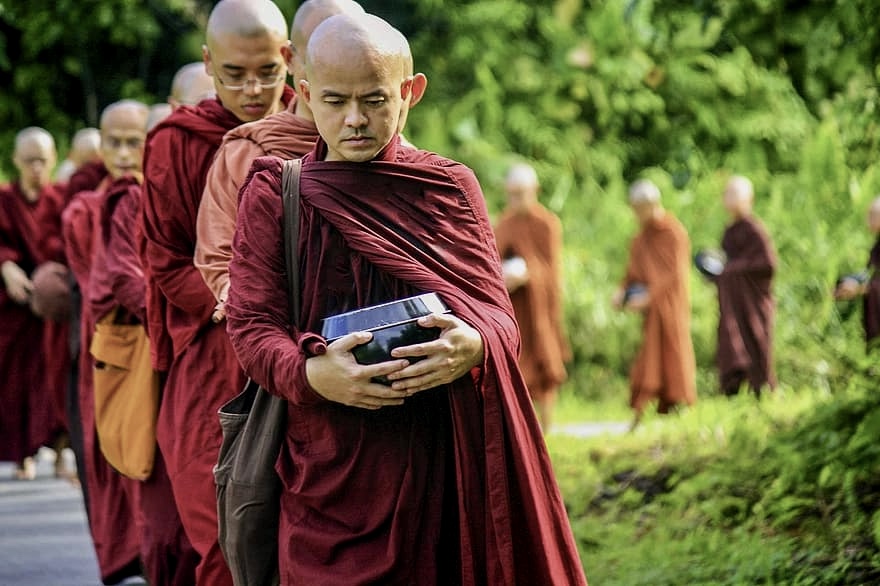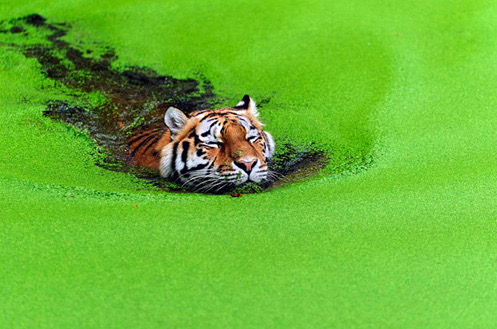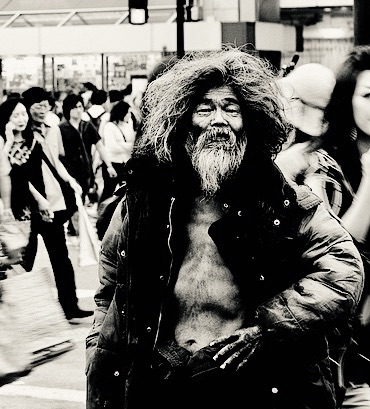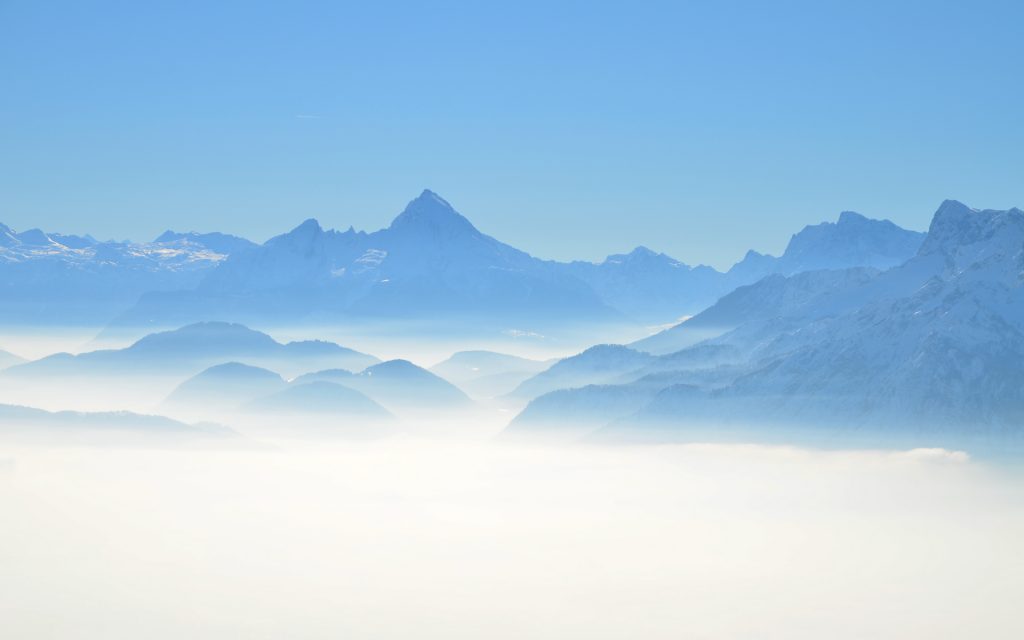
one robe, one bowl
Having left the Fifth Ancestral Teacher’s place, Hui Neng traveled south for two months, and had reached the Ta Yu Range. He was pursued by the monk Hui Ming, who was originally a general, accompanied by several hundred men, who wanted to seize the robe and bowl (emblematic of succession to the ancestral teachers).
Ming was the first to overtake him. The Sixth Ancestral Teacher threw down the robe and bowl on a rock and said, “This robe signifies faith: how can it be taken by force?” Ming tried to pick up the robe and bowl, but was unable to move them. At that point he said, “I have come for the Dharma, not for the robe.”
The Ancestral Teacher said, “Since you’ve come for the Dharma, you should put to rest all your motivations, and don’t give rise to a single thought, and I will explain for you.” After a silence, he said, “Without thinking of good, and without thinking of evil, at just such a time, which is your original face?”
At these words, Hui Ming was greatly enlightened. He also asked, “Besides the intimate words and meaning that struck home a moment ago, is there any further intimate message?”
The ancestral teacher said, “If it were said to you, it wouldn’t be intimate. If you turn around and reflect, what’s intimate is in you.”
Dahui
i don’t know
🪷





